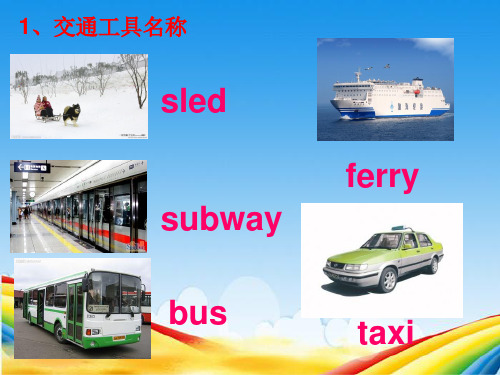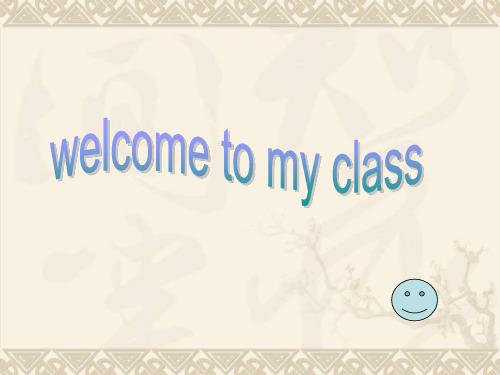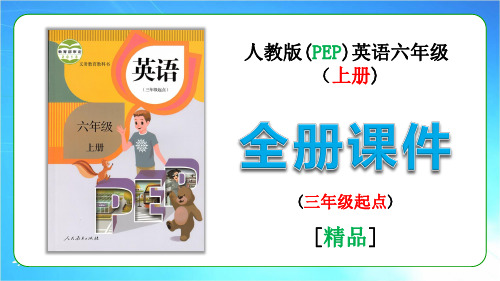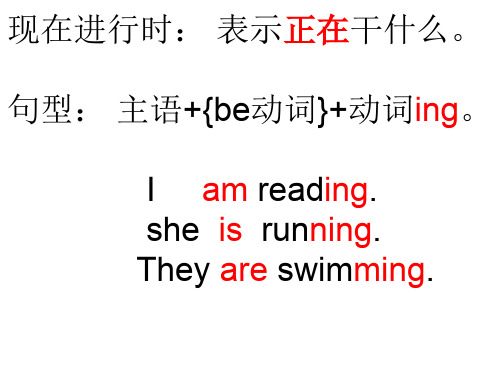六年级PEP小学英语上复习课件.ppt
合集下载
六年级的英语上册版第二单元复习新PEP人教版完美版ppt课件

A. to C. a
B. / D. at
11. We go to Beijing ______ train.
A. in
B. at
C. by
12. How do you get to the USA ____China?
A. for
B. to
C. from
13. In the USA, people on bikes must ____ a helmet.
(.) _T_h_e_y_a_r_e__fr_o_m__m__y_c_o_u_s_i_n_i_n_t_h_e__U_S_A_._ 8. get, the, can, I, to, hospital, how
_H_o__w_c_a_n__I_g_e_t_t_o_t_h_e_h_o__s_p_it_a_l?_______
2. That’s good_________ A. exercise. B.a exercise C.the exercise D.excercises
3. What’s this? ________a helmet.
A. This is B. That is C. It’s D Its 4. The bus is__________.
1、交通工具名称
sled
subway
ferry
bus
taxi
2、频率副词
always > usually > often > sometimes > never
3、短语
慢下来:
slow down
注意:
pay attention to
交通信号灯:
traffic lights
Stop and wait at a red light .
PEP小学英语六年级上册第一单元--复习课件

( 4 )But yesterday I went to school by bus.
( 3 )Because my home is near ( 5 )Because it was a snowy day.
第23页,共30页。
• 1. do you go to school ? I go to school foot.
2. I go to school _____ bike.
3. We can get to the zoo____foot, ______ it’s very near.
三、按顺序排列各句,组成短文 ( 2 )I usually go to school on foot. ( 1 )I’m Amy. I’m a school girl.
by train
on foot
How do you go to...?你如何去……? I go to某地+交通工具.
the USA the park Hangzhou Nanchang
the Great Wall
the theme park
第3页,共30页。
the zoo
How do you go to… Kunmin?g
/ruːlz/
No, you must …
Yes, you can go.
第13页,共30页。
How can I get to+地点? 我怎样可以到达……? You can go by No.数字 bus. 你能乘坐……路车。
No.=number
Can I go …?
我能……去吗?
YSesu, yroeu,
七、看图填写单词
1. No. 8 _bus___ stop____ is near our school. 2. Can I go on _foot____? It’s not far. 3. Look at the _traffic_ _lights___. 4. I go to the park by __subway______.
( 3 )Because my home is near ( 5 )Because it was a snowy day.
第23页,共30页。
• 1. do you go to school ? I go to school foot.
2. I go to school _____ bike.
3. We can get to the zoo____foot, ______ it’s very near.
三、按顺序排列各句,组成短文 ( 2 )I usually go to school on foot. ( 1 )I’m Amy. I’m a school girl.
by train
on foot
How do you go to...?你如何去……? I go to某地+交通工具.
the USA the park Hangzhou Nanchang
the Great Wall
the theme park
第3页,共30页。
the zoo
How do you go to… Kunmin?g
/ruːlz/
No, you must …
Yes, you can go.
第13页,共30页。
How can I get to+地点? 我怎样可以到达……? You can go by No.数字 bus. 你能乘坐……路车。
No.=number
Can I go …?
我能……去吗?
YSesu, yroeu,
七、看图填写单词
1. No. 8 _bus___ stop____ is near our school. 2. Can I go on _foot____? It’s not far. 3. Look at the _traffic_ _lights___. 4. I go to the park by __subway______.
PEP人教版六年级英语上册全册课件【完整版】

bookstore
near hospital
In front of
next to
turn left
beside
bookstore
near hospital
Story time
或点击此处播放视频
点击图片,播放视频
词汇:
science museum、post office、 bookstore、cinema、hospital、 crossing、turn、left、straight、 right
Q1:What does Wu Yifan want to buy? He wants to buy a postcard.
Q2:Where is the museum shop/post office? The museum shop is near the door. The post office is next to the museum.
hospital
science museum
Make a map and talk
pet hospital
park
There is a pet hospital in my city.
Where is it ?
It’s near the park.
Group work
pet hospital bookstore
Robin: I don’t know. I'll ask. Excuse me, sir. Man: Wow! A talking robot! What a great museum! Robin: Where is the post office? Man: It's next to the museum.
新版PEP小学英语六年级上册unit2PPT 课件

Group work: role play
homework
作业本:P7
Four students in a group to make a survey.
places
name
school bookstore cinema …
on foot/ by bus/by bike…
by plane
by bus
Ok, now let’s listen what does Mrs Smith tell the children to do when they go to the nature park.
one by one 一个接一个
Where is Wu Yifan? Why doesn’t he go with them?
What do you learn about riding a bike from the dialogue(对话)?
+ learn about
talk about`
动词ing形式
`
tell somebody to do go with somebody be going to from somebody pay attention to learn / talk about + doing Don’t + 动词原型 must + 动词原型
红灯停
Stop at the red light
绿灯行
Go at the green light
It’s a bike.
by bike
I come to school by bike.
I usually come to school by bus.
人教版(PEP三年级起点)小学英语六年级上册精品课件(全册)15035m

人教版(PEP)英语六年级 (上册)
(三年级起点)
[精品]
人教(PEP)版六年级英语上册
(三年级起点)
Unit 1 How can I get there?
第一课时
课前热身
Let’s sing!
Twinkle twinkle little star
Twinkle, twinkle, little star. How I wonder what you are. Up above the world so high. Like a diamond in the sky. Twinkle, twinkle, little star. How I wonder what you are.
—(地点名词)在哪儿? —它紧挨着/附近/后面(地点名词)。
重难点探究
重点词汇1
science /ˈsaɪəns / (名词)科学
短语 例句 延伸
the science book科学书
Science is very interesting. 科学非常的有趣。
scientific 科学的
重难点探究
poster 海报 office 办公室 officer 公务员
重难点探究
重点词汇4
bookstore /'bʊkstɔː/ (名词)书店
复数形式 bookstores
例句 Where is the bookstore? 书店在哪儿?
重难点探究
重点词汇5
cinema /ˈsɪnəmə / (名词)电影院
注意:
Turn right at the hospital .
到医院右拐。 除了学习一些问路的话语,还要学习一些指 路的语言。
(三年级起点)
[精品]
人教(PEP)版六年级英语上册
(三年级起点)
Unit 1 How can I get there?
第一课时
课前热身
Let’s sing!
Twinkle twinkle little star
Twinkle, twinkle, little star. How I wonder what you are. Up above the world so high. Like a diamond in the sky. Twinkle, twinkle, little star. How I wonder what you are.
—(地点名词)在哪儿? —它紧挨着/附近/后面(地点名词)。
重难点探究
重点词汇1
science /ˈsaɪəns / (名词)科学
短语 例句 延伸
the science book科学书
Science is very interesting. 科学非常的有趣。
scientific 科学的
重难点探究
poster 海报 office 办公室 officer 公务员
重难点探究
重点词汇4
bookstore /'bʊkstɔː/ (名词)书店
复数形式 bookstores
例句 Where is the bookstore? 书店在哪儿?
重难点探究
重点词汇5
cinema /ˈsɪnəmə / (名词)电影院
注意:
Turn right at the hospital .
到医院右拐。 除了学习一些问路的话语,还要学习一些指 路的语言。
PEP小学英语六年级上册第一单元复习课件

决问题
目的:通过小 组讨论,加深 学生对知识点 的理解,提高 解决问题的能
力
适用范围:适 用于复习阶段, 特别是对于重 点和难点知识
点的复习
实施方式:教师 根据学生的学习 情况,将学生分 成若干小组,每 个小组选出一名 组长负责组织讨
论
个别辅导:针对学生的学习情况,进行个别辅导,帮助学生 解决学习难题
复习时间:本次复习计划用时2个课时,每个课时45分钟 复习内容:本单元的重点词汇、句型和语法知识 复习方式:通过讲解、练习、游戏等多种方式进行复习 复习目标:帮助学生巩固所学知识,提高英语应用能力
内容分配:第一课时进行单词和句型的复习,第二课时进行 课文和练习的复习
第一课时:单词 和句型的复习
第二课时:课文 和练习的复习
针对学生的学习情况,进行个别辅导,帮助学生解决学习难题。
针对学生的学习情况,进行个别辅导,帮助学生解决学习难题。
针对学生的学习情况,进行个别辅导,帮助学生解决学习难题。
针对学生的学习情况,进行个别辅导,帮助学生解决学习难题。
游戏互动:通过游戏的方式进行复习,增加学习的趣味性, 提高学生的参与度
能够理解并运用本单元的语法 点,如第三人称单数形式的动 词变化等。
能够在实际情境中运用本单元 所学的语言知识,进行简单的 交流和表达。
提高听、说、读、写能力
口语表达:通过模仿、朗读、 对话等形式,提高学生的口语 表达能力。
听力训练:通过听录音、看视 频等方式,提高学生的听力理 解能力。
阅读理解:通过阅读课文、短 文等材料,提高学生的阅读理
通过游戏的方式 进行复习,增加 学习的趣味性, 提高学生的参与 度。
游戏设计应与课 程内容紧密相关, 让学生在游戏中 巩固所学知识。
目的:通过小 组讨论,加深 学生对知识点 的理解,提高 解决问题的能
力
适用范围:适 用于复习阶段, 特别是对于重 点和难点知识
点的复习
实施方式:教师 根据学生的学习 情况,将学生分 成若干小组,每 个小组选出一名 组长负责组织讨
论
个别辅导:针对学生的学习情况,进行个别辅导,帮助学生 解决学习难题
复习时间:本次复习计划用时2个课时,每个课时45分钟 复习内容:本单元的重点词汇、句型和语法知识 复习方式:通过讲解、练习、游戏等多种方式进行复习 复习目标:帮助学生巩固所学知识,提高英语应用能力
内容分配:第一课时进行单词和句型的复习,第二课时进行 课文和练习的复习
第一课时:单词 和句型的复习
第二课时:课文 和练习的复习
针对学生的学习情况,进行个别辅导,帮助学生解决学习难题。
针对学生的学习情况,进行个别辅导,帮助学生解决学习难题。
针对学生的学习情况,进行个别辅导,帮助学生解决学习难题。
针对学生的学习情况,进行个别辅导,帮助学生解决学习难题。
游戏互动:通过游戏的方式进行复习,增加学习的趣味性, 提高学生的参与度
能够理解并运用本单元的语法 点,如第三人称单数形式的动 词变化等。
能够在实际情境中运用本单元 所学的语言知识,进行简单的 交流和表达。
提高听、说、读、写能力
口语表达:通过模仿、朗读、 对话等形式,提高学生的口语 表达能力。
听力训练:通过听录音、看视 频等方式,提高学生的听力理 解能力。
阅读理解:通过阅读课文、短 文等材料,提高学生的阅读理
通过游戏的方式 进行复习,增加 学习的趣味性, 提高学生的参与 度。
游戏设计应与课 程内容紧密相关, 让学生在游戏中 巩固所学知识。
pep小学六年级英语上册说课PPT课件

能根据图片 词语或例句的 提示写出简短的描述
能在教师的帮助下表 演小故事,演唱简单 的英语歌曲
能用简单的英语互致问 候,并能就日常话题作 简短叙述
在学习中乐于参与 积极合作,初步形成 对英语的感知能力和 良好的学习习惯
对继续学习英语有兴趣
六年 级 二级 目标
学段 总目标
第4页/共29页
乐于了解外国文化和习俗
编写意 图
内容标 准
课程的 总目标 和学段 目标
内容结构
说教材
说 课 流 程
第1页/共29页
知识和技 能的立体 式整合
教学建议
评价建议
课程资源的 开发与利用
说课标
第2页/共29页
本学科的课程总目标
语言技能
学习策略
是综合运 用语言能 力的基础
语言知识
情感态度
第3页/共29页
文化意识
能在图片的帮助下听懂 读懂并讲述简单的故事
以问题推动学习,通过解决问题来感知整体的阅读材料。教师根据学生的认知 规律,借助课文图片,通过多媒体的方式呈现问题,让学生带着问题去听录音。例 如第二单元阅读,通过设计问题的方式来帮助学生理解、鉴赏文章的切入点。即教 师设计问题, 要遵循循序渐近的原则, 要把问题建筑在学生的注意力和兴趣之上,服 务于全面提高学生素质水平的目标需要。可以让同桌或小组成员一起合作完成。 3.在阅读过程中,鼓励学生向教师提问,请求帮助。通过略读与细读相结合,学生 就能透彻理解全文,但在读的过程中也不能忽略写,尤其是阅读课文的下一页非常 重要,要求我们老师要重视起来。
第14页/共29页
说建议
第15页/共29页
阅读部 分的教
学
词汇教 学
说 建 议
能在教师的帮助下表 演小故事,演唱简单 的英语歌曲
能用简单的英语互致问 候,并能就日常话题作 简短叙述
在学习中乐于参与 积极合作,初步形成 对英语的感知能力和 良好的学习习惯
对继续学习英语有兴趣
六年 级 二级 目标
学段 总目标
第4页/共29页
乐于了解外国文化和习俗
编写意 图
内容标 准
课程的 总目标 和学段 目标
内容结构
说教材
说 课 流 程
第1页/共29页
知识和技 能的立体 式整合
教学建议
评价建议
课程资源的 开发与利用
说课标
第2页/共29页
本学科的课程总目标
语言技能
学习策略
是综合运 用语言能 力的基础
语言知识
情感态度
第3页/共29页
文化意识
能在图片的帮助下听懂 读懂并讲述简单的故事
以问题推动学习,通过解决问题来感知整体的阅读材料。教师根据学生的认知 规律,借助课文图片,通过多媒体的方式呈现问题,让学生带着问题去听录音。例 如第二单元阅读,通过设计问题的方式来帮助学生理解、鉴赏文章的切入点。即教 师设计问题, 要遵循循序渐近的原则, 要把问题建筑在学生的注意力和兴趣之上,服 务于全面提高学生素质水平的目标需要。可以让同桌或小组成员一起合作完成。 3.在阅读过程中,鼓励学生向教师提问,请求帮助。通过略读与细读相结合,学生 就能透彻理解全文,但在读的过程中也不能忽略写,尤其是阅读课文的下一页非常 重要,要求我们老师要重视起来。
第14页/共29页
说建议
第15页/共29页
阅读部 分的教
学
词汇教 学
说 建 议
PEP小学英语六年级上册UNIT5What+does+he+doRevision复习课件ok

What do/ does + 主语 + do ?
(2)询问他人工作地点的句型:句型结构:疑问词 + 助动词 + 主语(人/ 物)+ 动词原形( work )? 答 语:主 语 + work / works + (地点)介词短语例句:
Where + do\does + 主语 + work
Who knows most
drive+r=driver(司机)
dance+r=dancer(舞者)
read+er=reader(读者)
farm+er=farmer(农夫)
waiter: 侍者(服务生) waitress女侍者(服务生)
cook: 厨师
work+er=worker(工人)
【达标检测,大显身手】
A
B
C
His father is an actor. My dad’s a cleaner at the zoo. Her father is a doctor. What does your father do His father goes to work by car. My dad goes to work by bus. Her father goes by bicycle. They work hard every day for us!
三、我能按要求写词语 teach(名词) fish(名词) drive(名词) clean(名词) write(名词) sing(名词) dancer(动词) worker(动词) do(三单) work(三单) see(三单) go(三单) stay(三单) study (三单) like(三单) go(三单) want(三单) has(原形)
(2)询问他人工作地点的句型:句型结构:疑问词 + 助动词 + 主语(人/ 物)+ 动词原形( work )? 答 语:主 语 + work / works + (地点)介词短语例句:
Where + do\does + 主语 + work
Who knows most
drive+r=driver(司机)
dance+r=dancer(舞者)
read+er=reader(读者)
farm+er=farmer(农夫)
waiter: 侍者(服务生) waitress女侍者(服务生)
cook: 厨师
work+er=worker(工人)
【达标检测,大显身手】
A
B
C
His father is an actor. My dad’s a cleaner at the zoo. Her father is a doctor. What does your father do His father goes to work by car. My dad goes to work by bus. Her father goes by bicycle. They work hard every day for us!
三、我能按要求写词语 teach(名词) fish(名词) drive(名词) clean(名词) write(名词) sing(名词) dancer(动词) worker(动词) do(三单) work(三单) see(三单) go(三单) stay(三单) study (三单) like(三单) go(三单) want(三单) has(原形)
新版pep小学英语六年级上册第二单元PPT 课件

1.(×) They are talking about a sports
meet.
谈论
2.(√ ) They will go by bus.
通常 有时 经常
史密斯夫人 早到的
走路 (动词) 好的锻炼
Mr. Mrs. 和 Miss 的区别
Mr. 先生,用来称呼男性。 Mrs.夫人,用来称呼已婚女性。 Miss 是对未婚女子的尊称。
walk = on foot 走路,步行
P14 Let’s talk
A: Good morning, Mrs Smith! B: Hi, children. You _a_r_e__ early.
How do you __co_m_e___ to school? A: Usually, I come __o_n_ __fo_o_t__.
(交通工具展)
How do you come to school? I sometimes come by bus.
100% 80%
60% 40% 0%
always>usually>often>sometimes>never
come 与 go 的区别
go to school
去学校
come to school
So_m_e_t_i_m_e_s I come by __b_u_s__. B: I often come __b_y__ bike. A: How __do__ you come to school, Mrs
Smith? _B_y__ car? B: Sometimes, but I usually _w__al_k_. A: That’s 018年 中国大 学毕业 生薪酬 排行榜 通过对 280多 万以及 多届毕 业生调 研后, 计算出 了各高 校毕业 生的薪 酬状况 。 虽然我们都知道名校毕业生的收入会普 遍比较 高,但 这份榜 单告诉 我们, 清华北 大毕业 生的月 薪,平 均近万 ,而普 通院校 的只有 两三千 。
新版pep小学英语六年级上册第二单元ppt课件

通常 有时 经常
史密斯夫人 早到的
走路 (动词) 好的锻炼
采用PP管及配件:根据给水设计图配置好PP管及配件,用管件在 管材垂 直角切 断管材 ,边剪 边旋转 ,以保 证切口 面的圆 度,保 持熔接 部位干 净无污 物
Mr.
Mrs. 和 Miss 的区别
Mr. 先生,用来称呼男性。 Mrs.夫人,用来称呼已婚女性。 Miss 是对未婚女子的尊称。
Listen and tick or cross.
• (×) They are talking about a sports
meet.
谈论
• (√ ) They will go by bus.
采用PP管及配件:根据给水设计图配置好PP管及配件,用管件在 管材垂 直角切 断管材 ,边剪 边旋转 ,以保 证切口 面的圆 度,保 持熔接 部位干 净无污 物
100% 80%
60% 40% 0%
always>usually>often>sometimes>never
采用PP管及配件:根据给水设计图配置好PP管及配件,用管件在 管材垂 直角切 断管材 ,边剪 边旋转 ,以保 证切口 面的圆 度,保 持熔接 部位干 净无污 物
come 与 go 的区别
采用PP管及配件:根据给水设计图配置好PP管及配件,用管件在 管材垂 直角切 断管材 ,边剪 边旋转 ,以保 证切口 面的圆 度,保 持熔接 部位干 净无污 物
The Transportation Exhibition
(交通工具展)
How do you come to school? I often come by bike.
采用PP管及配件:根据给水设计图配置好PP管及配件,用管件在 管材垂 直角切 断管材 ,边剪 边旋转 ,以保 证切口 面的圆 度,保 持熔接 部位干 净无污 物
史密斯夫人 早到的
走路 (动词) 好的锻炼
采用PP管及配件:根据给水设计图配置好PP管及配件,用管件在 管材垂 直角切 断管材 ,边剪 边旋转 ,以保 证切口 面的圆 度,保 持熔接 部位干 净无污 物
Mr.
Mrs. 和 Miss 的区别
Mr. 先生,用来称呼男性。 Mrs.夫人,用来称呼已婚女性。 Miss 是对未婚女子的尊称。
Listen and tick or cross.
• (×) They are talking about a sports
meet.
谈论
• (√ ) They will go by bus.
采用PP管及配件:根据给水设计图配置好PP管及配件,用管件在 管材垂 直角切 断管材 ,边剪 边旋转 ,以保 证切口 面的圆 度,保 持熔接 部位干 净无污 物
100% 80%
60% 40% 0%
always>usually>often>sometimes>never
采用PP管及配件:根据给水设计图配置好PP管及配件,用管件在 管材垂 直角切 断管材 ,边剪 边旋转 ,以保 证切口 面的圆 度,保 持熔接 部位干 净无污 物
come 与 go 的区别
采用PP管及配件:根据给水设计图配置好PP管及配件,用管件在 管材垂 直角切 断管材 ,边剪 边旋转 ,以保 证切口 面的圆 度,保 持熔接 部位干 净无污 物
The Transportation Exhibition
(交通工具展)
How do you come to school? I often come by bike.
采用PP管及配件:根据给水设计图配置好PP管及配件,用管件在 管材垂 直角切 断管材 ,边剪 边旋转 ,以保 证切口 面的圆 度,保 持熔接 部位干 净无污 物
pep小学六年级英语上册unit3课件

Sarah take a trip
next week
John play sports
this afternoon
Liu Yun clean her room this morning
B Let’s talk.
A:Where are you going this afternoon.今天下午你 打算干什么?
on foot the supermarket / tomorrow evening
例:
What are you going to do this afternoon? I am going to the theme park .
How do you go to the theme park? I go by bus.
B:I'm going to the bookstore.我打算去书店。 A: What are you going to buy?你打算买什么? B:I'm going to buy a comic book.我打算买一本漫画 书。
A:When are you going?你准备什么时候去? B:I'm going at 3 o'clock. 我准备3:00去。
句型:疑问词+be动词+主语+going to+动词原形+将来 时间?
1. What (询问活动) 例:What are you going to do tonight?
今晚你打算干什么? I am going to the cinema.
我打算去看电影。
2. Where(询问地点) 例: Where are you going this evening?
- 1、下载文档前请自行甄别文档内容的完整性,平台不提供额外的编辑、内容补充、找答案等附加服务。
- 2、"仅部分预览"的文档,不可在线预览部分如存在完整性等问题,可反馈申请退款(可完整预览的文档不适用该条件!)。
- 3、如文档侵犯您的权益,请联系客服反馈,我们会尽快为您处理(人工客服工作时间:9:00-18:30)。
How are you ? I’m fine .Thank you . What’s the matter ? I feel sick .
have a cold . have a fever .
have a sore throat . have a headache .
have a toothache .
Unit 1 How tall are you? 词汇(Vocabulary):
比较级 taller stronger older younger shorter
heavier thinner longer bigger smaller (2)水生动物: squid lobster shark seal sperm whale killer whal (3)其他: cm (centimeter) little tail think feet size wear meter ton each even
9. A: _____________________________________? B: He’s swimming now.
10. A: ___________________________________? B: I like winter best.
happy, sad, bored, angry, tired, excited
四.音标练习(Phonetic Symbol)
[k]
[n] [h] [l] [s]
coat know hole load soap
count now house loulast weekend
词汇(Vocabulary)。
(1)单词
last weekend to yesterday fly return
(2 )短语
do homework
did homework
wash the clothes
washed the clothes
visit grandparents
B: Lucy is 15 years old. 3. A: ______________________________________?
B: No, my father is 60 kg. 4. A: _____________________________________?
B: Tom is taller than you . 5. A: ________________________________________?
Uint2 what’s the matter, Mike? 词汇(Vocabulary):
表示心情的: tired angry excited happy sad bored
疾病: have a fever hurt have a cold have a toothache
have a sore throat have a headache
基本句型(basic sentence patterns )
How old/tall/heavy are you? You’re shorter than me.
You’re 4 cm taller than me.
How long are you legs? 你腿有多长呀
三、读对话学句子(dialogue). A: How tall are you? B: I m 160 cm tall. A: You are shorter than me. B: Yes, I am 158 cm. You are 2 cm taller than me. A: How old are you ? B: I am 13 years old. A: I am 14 years old ,I am 1 year older than you. B: How heavy are you? A: I am 45 kg . B: I am thinner and shorter than you .
二、 基本句型(basic sentence patterns ) How are you? 你好吗?
What’s the matter Mike?你怎么了? 麦克。 How do you feel? 你感觉怎么样? 三、读对话学句子(dialogue), (1) A: how do you feel? B: I feel sick. A: What’s the matter ? B: I have a fever.
(2) A: How are you , Jim? You look so happy. B: Yes I’m excited .I am going on a big trip. A :How are you? You look sad today. B: I failed math test. A:I am sorry to hear that.
四、音标练习(Phonetic Symbol) [p] [b] [t] [d]
[ei] pain baby tail day [ai] pine bike type dive
二、看答句写问句。 1. A: ____________________________________?
B: I’m 150cm tall. 2. A:_______________________________________?
B: I wear size 33.
6. A: ___________________ ___________________? B: No, my legs are 74cm long. 7. A: ___________________________________? B: Amy’s hair is 20cm long. 8. A: _____________________________________? B: The tree is 36 meters tall.
